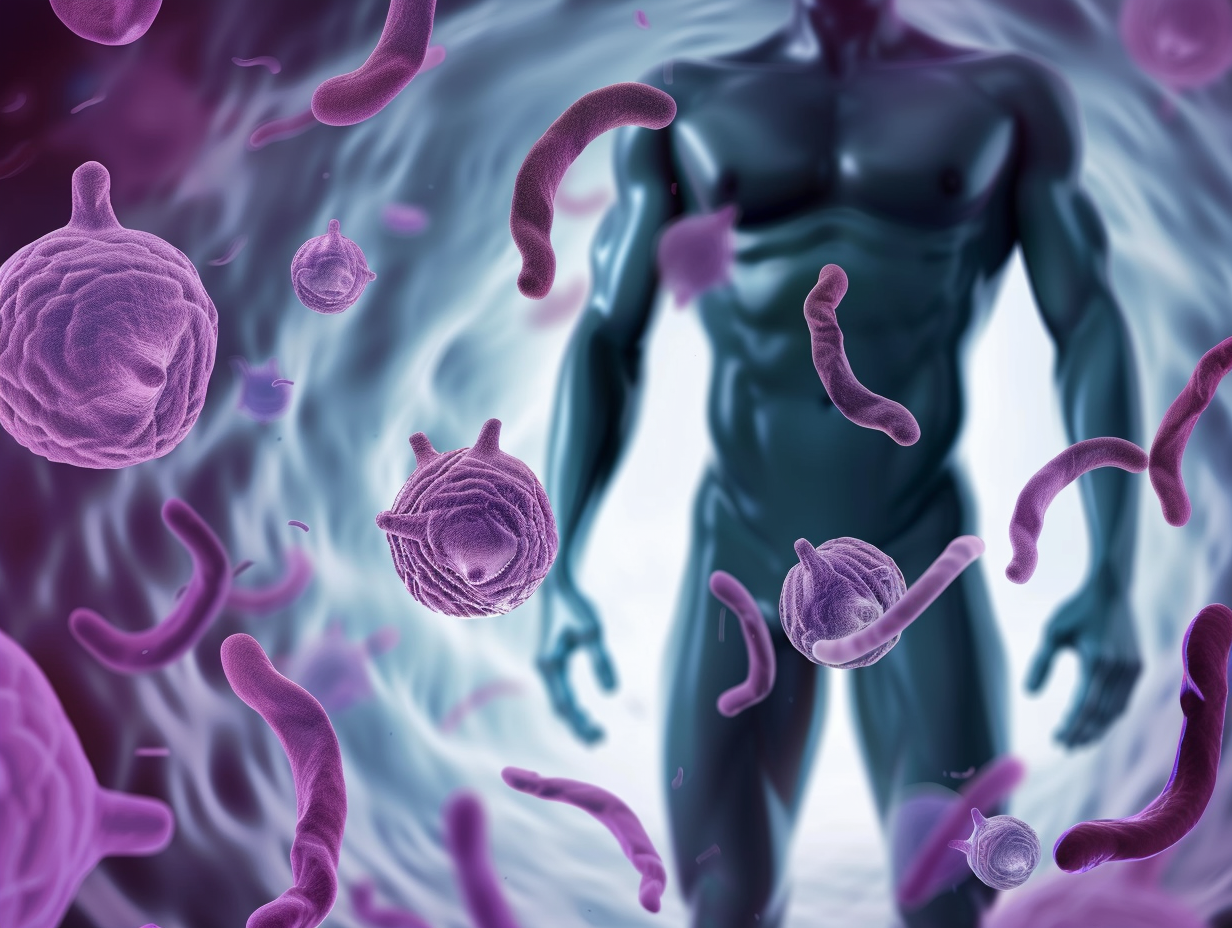What is luteinizing hormone?
Luteinizing hormone (LH) is an essential hormone produced by the pituitary gland that plays a key role in regulating the reproductive system. The hypothalamus, a brain region connecting the nervous and endocrine systems via the pituitary gland, controls LH secretion through the release of gonadotropin-releasing hormone (GnRH).
LH secretion is part of a feedback loop involving sex hormones like estrogen and testosterone.
Role of LH:
- In males, LH stimulates the Leydig cells in the testes to produce testosterone.
- In females, LH triggers ovulation and helps maintain the corpus luteum's function.
What is follicle-stimulating hormone?
Follicle-stimulating hormone (FSH) is another crucial gonadotropin hormone that significantly impacts the reproductive systems of both males and females. Produced and released by the anterior pituitary gland at the brain's base, FSH secretion is regulated by the hypothalamus through gonadotropin-releasing hormone (GnRH). FSH and luteinizing hormone (LH) work together to control reproductive processes via a feedback loop involving sex hormones such as estrogen and testosterone.
Role of FSH:
- In males: FSH stimulates the Sertoli cells in the testes, which are essential for spermatogenesis (the production of sperm).
- In females: FSH is vital for the growth and maturation of ovarian follicles.
Optimal Levels for Men:
- LH: 1.8 to 8.6 IU/L
- FSH: 1.0 to 12.0 IU/L
How do steroids affect these hormones?
Anabolic steroid use significantly impacts the body's hormonal balance, particularly affecting the levels of luteinizing hormone (LH) and follicle-stimulating hormone (FSH). Here's how it works:
Mechanism of Action:
Suppression of Gonadotropin-Releasing Hormone (GnRH):
- Anabolic steroids increase the levels of synthetic androgens in the body, which the hypothalamus detects. In response, it reduces the secretion of GnRH.
Reduction of LH and FSH Secretion:
- Lower GnRH levels lead to decreased stimulation of the pituitary gland, which in turn reduces the secretion of LH and FSH. These hormones are crucial for the normal functioning of the reproductive system.
Impact on Testicular Function:
- LH stimulates the production of testosterone in the testes, while FSH is essential for spermatogenesis. Reduced levels of LH and FSH can lead to decreased endogenous testosterone production and impaired sperm production.
Short-term Effects:
Reduced Testosterone Production:
- The body’s natural testosterone production decreases because the exogenous steroids signal that there is enough testosterone present.
Decreased Sperm Production:
- Lower FSH levels impair spermatogenesis, leading to reduced sperm count and potential infertility.
Long-term Effects:
Testicular Atrophy:
- Prolonged suppression of LH and FSH can lead to shrinkage of the testes due to decreased endogenous testosterone production.
Potential Infertility:
- Chronic use of anabolic steroids can lead to long-term or even permanent infertility due to persistent suppression of LH and FSH.
Restoring LH and FSH:
HPT Axis Recovery:
- After discontinuing anabolic steroids, the hypothalamic-pituitary-testicular (HPT) axis can take time to recover. This recovery period varies among individuals.
Post-Cycle Therapy (PCT):
PCT is a protocol followed after stopping steroids to help restore natural hormone levels. Common components of PCT include:
- Selective Estrogen Receptor Modulators (SERMs): Drugs like Clomiphene (Clomid) and Tamoxifen (Nolvadex) are used to stimulate the hypothalamus and pituitary gland, increasing LH and FSH production.
- Human Chorionic Gonadotropin (hCG): hCG mimics LH and can stimulate the testes directly, often used before starting SERMs if testicular atrophy is present.
Aromatase Inhibitors (AIs)
Aromatase inhibitors such as Anastrozole (Arimidex) or Letrozole can be used to control estrogen levels, as elevated estrogen can further suppress LH and FSH.
Monitoring Hormone Levels
- Regular blood tests to monitor LH, FSH, testosterone, and estrogen levels are crucial. Adjustments to PCT protocols may be necessary based on these results.
Lifestyle Modifications
- Diet: Consuming a balanced diet rich in vitamins and minerals (e.g., zinc, vitamin D) supports hormone production.
- Exercise: Engaging in regular physical activity, particularly resistance training, can naturally boost testosterone levels.
- Sleep: Ensuring adequate and quality sleep helps maintain hormonal balance.
- Stress Management: Chronic stress can negatively impact hormone levels, so stress-reducing practices such as meditation and mindfulness are beneficial.
Patience and Consistency
- Recovery of natural hormone production can take time, and consistency with PCT and lifestyle changes is essential. Some individuals may recover quickly, while others might need several months.
Medical Supervision
It's important to undergo this process under the supervision of a healthcare professional, preferably an endocrinologist or a physician experienced in hormone replacement therapy (HRT). They can tailor the PCT protocol to individual needs, monitor progress, and address any complications.
Long-term Considerations
- Fertility: Men looking to restore fertility might need additional treatments like recombinant FSH.
- Mental Health: Psychological support might be necessary as hormonal imbalances can affect mood and mental well-being.
Anabolic steroid use can significantly disrupt the normal functioning of luteinizing hormone (LH) and follicle-stimulating hormone (FSH). These steroids often lead to a decrease in the natural production of these hormones, impairing the body’s ability to regulate reproductive processes. In males, this can result in reduced sperm production and testicular atrophy, while in females, it can cause menstrual irregularities and ovarian dysfunction. Maintaining optimal levels of LH and FSH is crucial for fertility, sexual health, and overall endocrine balance. Regular blood testing is essential for individuals using or considering anabolic steroids to monitor hormone levels, assess potential disruptions, and take corrective measures to safeguard reproductive health.
Disclaimer: This blog post is intended for educational purposes only and should not be taken as medical advice. Always consult your healthcare provider for personal health concerns.
